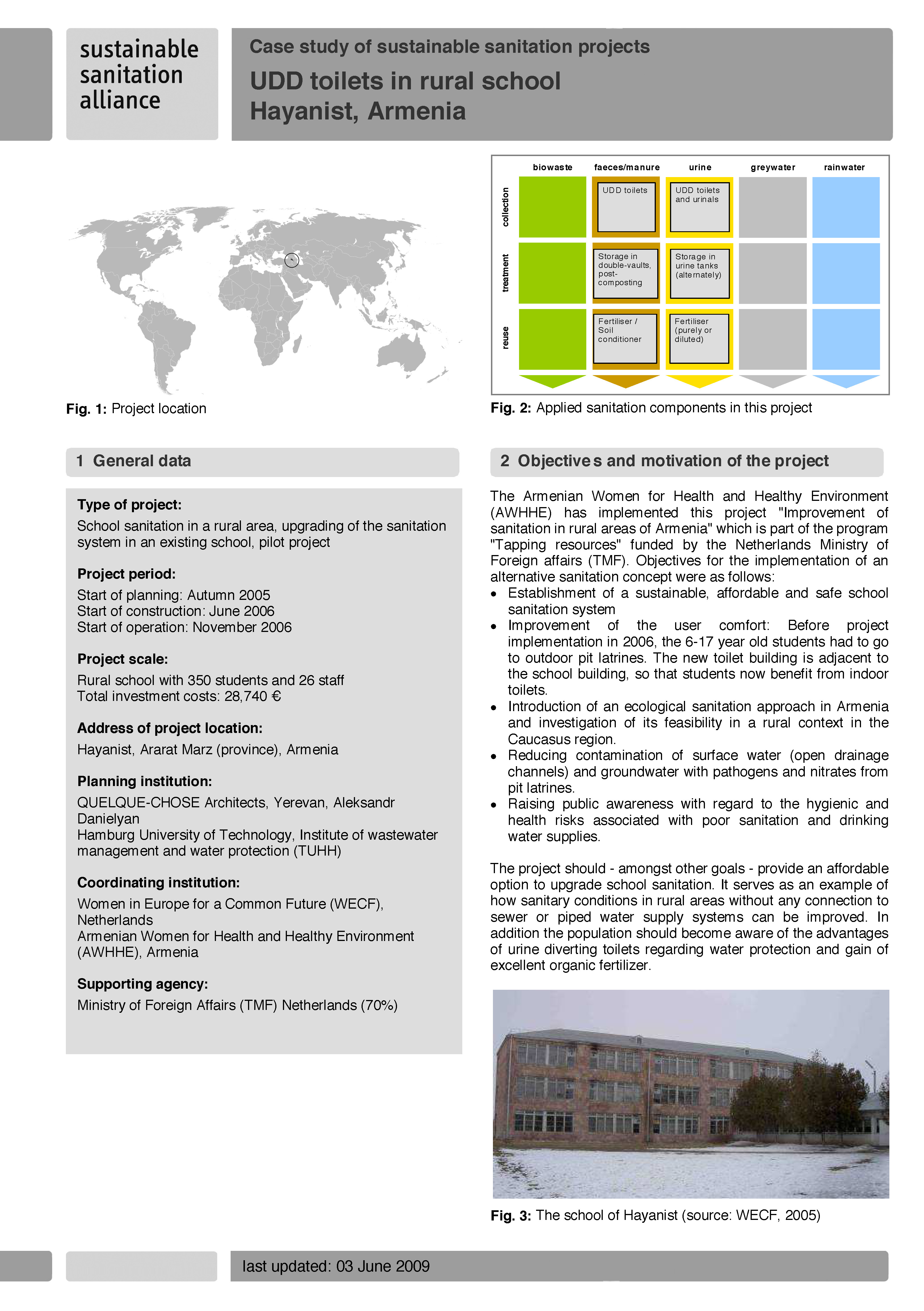UDD toilets in rural school Hayanist, Armenia - Case study of sustainable sanitation projects
Deegener, S., Samwel, M., Anakhasyan, E. (2009)

Published in: 2009
Publisher:
Sustainable Sanitation Alliance (SuSanA)
Author:
Deegener, S., Samwel, M., Anakhasyan, E.
Uploaded by:
SuSanA secretariat
Partner profile:
common upload
10997 Views
126 Downloads
Location of library entry
Content - Summary
This case study is about a pilot project to upgrade the sanitation system in an rural school. UDDTs were used to provide sanitation for 350 students and 26 staff.
The Armenian Women for Health and Healthy Environment (AWHHE) has implemented this project "Improvement of sanitation in rural areas of Armenia" which is part of the program "Tapping resources" funded by the Netherlands Ministry of Foreign affairs (TMF). Objectives for the implementation of an alternative sanitation concept were as follows:
· Establishment of a sustainable, affordable and safe school sanitation system
· Improvement of the user comfort: Before project implementation in 2006, the 6-17 year old students had to go to outdoor pit latrines. The new toilet building is adjacent to the school building, so that students now benefit from indoor toilets.
· Introduction of an ecological sanitation approach in Armenia and investigation of its feasibility in a rural context in the Caucasus region.
· Reducing contamination of surface water (open drainage channels) and groundwater with pathogens and nitrates from pit latrines.
· Raising public awareness with regard to the hygienic and health risks associated with poor sanitation and drinking water supplies.
The project should - amongst other goals - provide an affordable option to upgrade school sanitation. It serves as an example of how sanitary conditions in rural areas without any connection to sewer or piped water supply systems can be improved. In addition the population should become aware of the advantages of urine diverting toilets regarding water protection and gain of excellent organic fertilizer.
The main long-term impact of the project is an improved public health (e.g. reduced rate of diarrhoea incidences in children). For a quantification of this impact it is planned to analyze the change in the number of absences recorded in the classregisters. It is planned to assess this in late 2010 in the frame of Emma Anakhasyan's PhD thesis.
An additional impact is an increased awareness among politicians (both high and low administrational level) so that they financially support sustainable sanitation projects.
Bibliographic information
Deegener, S., Samwel, M., Anakhasyan, E. (2009). UDD toilets in rural school Hayanist, Armenia - Case study of sustainable sanitation projects. Sustainable Sanitation Alliance (SuSanA)
Filter tags
Case studies in SuSanA template English Europe & Central Asia Faeces or faecal sludge Rural Schools Urine Urine diversion dehydration toilets (UDDTs)















